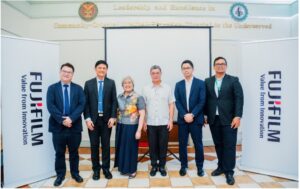
PH government must support emerging tech for long-term gains — PCIEERD

The Philippine government should implement supportive policies for emerging technologies like quantum technology, saying these innovations are expected to yield long-term benefits, according to a top official of Philippine Council for Industry, Energy and Emerging Technology Research and Development (PCIEERD).
Enrico C. Paringit, PCIEERD’s executive director, made this remark, citing the challenge of convincing leaders—who have short office terms, usually three years—to invest in long-term technologies that will pay off in about five to ten years.
“That’s really the challenge right now,” Mr. Paringit told reporters at the first day of Quantum Information, Science, and Technology Conference (QISTCon) in Cebu on Wednesday.
“We have to convince them that this is a long game, but a long game which is nonetheless winnable, and a long game that nonetheless will be worth the time and the effort that we’ll be putting into it,” he added.
Meanwhile, Department of Science and Technology (DOST) Secretary Renato J. Solidum Jr. said during his speech that the Philippines cannot afford not to invest in quantum technology, as other countries have already been doing so.
Countries like Singapore have poured billions of dollars into establishing its Centre for Quantum Technologies, the country’s flagship quantum research center.
“Our neighbors are not just racing ahead,” Mr. Solidum said. “They are staking their claims. If we do not move—decisively, creatively, collectively—we will wake up one day to find ourselves once again asking for permission to enter the future.”
A report from McKinsey & Company, a global consulting firm, said that quantum technology is projected to reach $97 billion in global revenue by 2035 and to grow exponentially to $198 billion by 2040.
Bobby O. Corpus, President of the Quantum Computing Society of the Philippines (QCSP), told reporters that the technology will create a paradigm shift that could significantly increase productivity across nearly all industries in the country, especially in health, agriculture, and finance.
Mr. Solidum expressed his optimism that through the Filipinos’ distinct spirit of collaboration, called ‘bayanihan’, the country is bound for quantum technology.
The country’s recent first QISTCon underscored that spirit of collaboration, bringing together local experts and stakeholders with international minds who shared how they have advanced in the field.
“We call on all researchers, educators, policymakers, students, and entrepreneurs in attendance to recognize that what you draft here—roadmaps, frameworks, strategies, partnerships—will help build the infrastructure of a Philippine future with quantum at its core,” Mr. Solidum said. – Edg Adrian A. Eva



